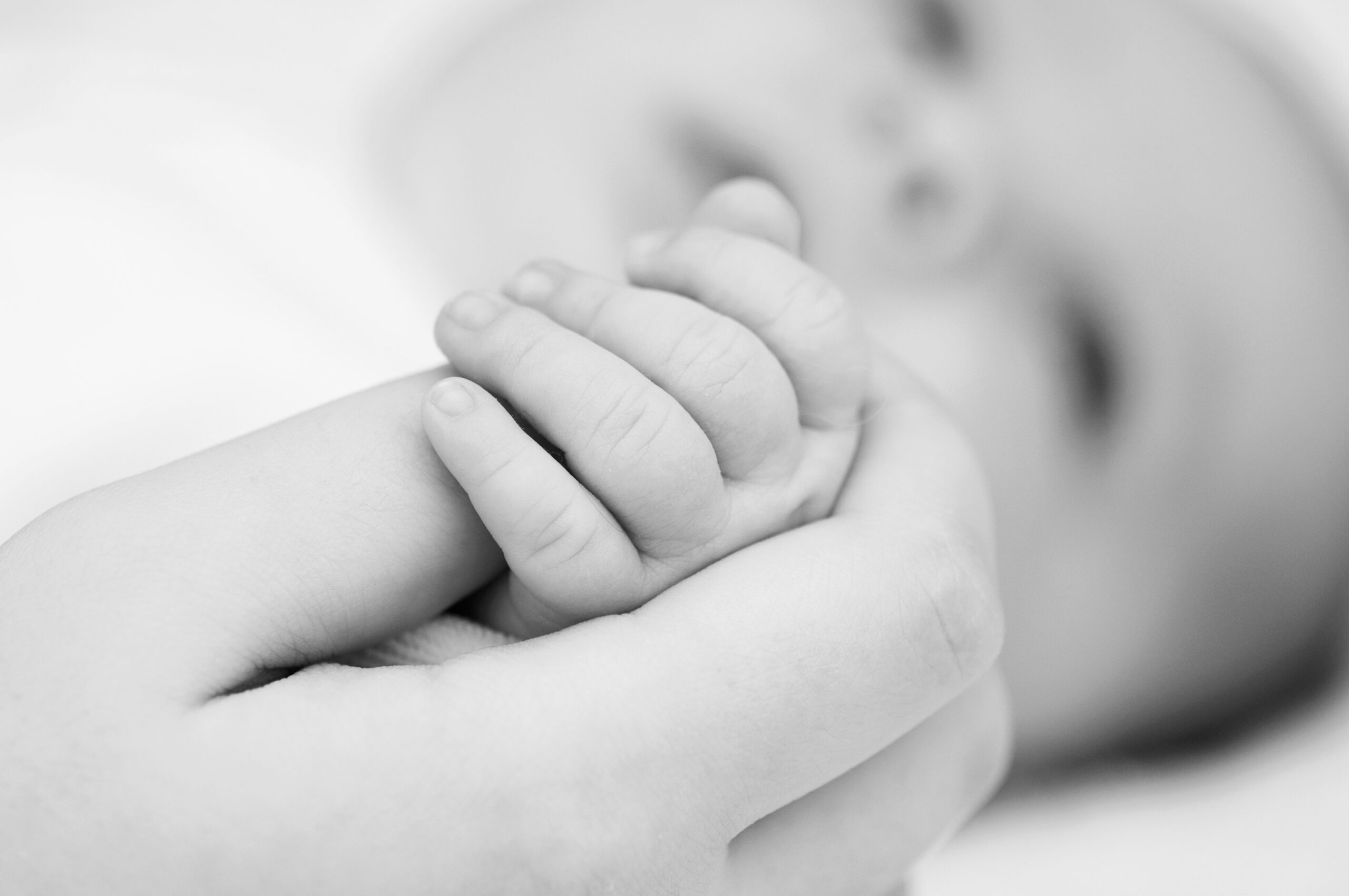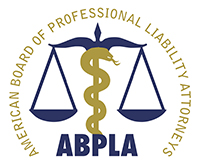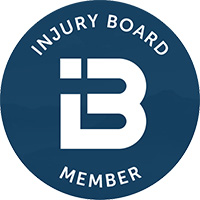
Types and Causes of Common Birth Injuries in Babies
When your baby is born, you want nothing more than to protect them from harm. Unfortunately, many parents do not get this chance. When a baby is injured during pregnancy, labor, or delivery, parents are often left wondering why? They may wonder what could have caused this injury, and how they could have prevented it.
First, it is important for parents to understand that a birth injury is not their fault. There are many causes of birth injuries. In many cases, a birth injury is a devastating event that could not have been prevented or anticipated. However, in some cases, a birth injury is caused by a doctor’s or medical professional’s negligence.
When medical negligence is suspected, families need someone on their side to help them pursue compensation and justice. An experienced birth injury lawyer can help during this difficult time.
Common Types of Serious Birth Injuries
According to recent statistics, 1 in every 9,714 people in the United States is born with a birth injury. This means that 28,000 babies a year or roughly three babies every hour are born with some form of birth injury.
Birth injuries can range from minor injuries that quickly resolve to more serious and life-threatening injuries. Understanding the severity of your baby’s birth injury is the key to ensuring that they have the resources they need both now and in the future.
The most common types of birth injuries include, but are not limited to:
Cerebral Palsy
Cerebral palsy is caused by brain damage that is typically suffered during pregnancy, labor or delivery. Two out of every one thousand babies are diagnosed with cerebral palsy.
When doctors or nurses fail to recognize signs of fetal distress, the baby’s brain can become deprived of oxygen. This loss of oxygen can lead to brain damage and cerebral palsy. Cerebral palsy can cause motor impairments, cognitive problems, and difficulty speaking and communicating.
Brachial Plexus Nerve Injuries
The brachial plexus is a group of nerves that are located in the shoulder and neck. These nerves are responsible for transmitting signals between the spinal cord and the shoulder, arm, and hand.
During delivery, improper use of forceps and improper delivery techniques can result in the brachial plexus being damaged. Mild nerve injuries may resolve on their own with physical therapy. However, more serious brachial plexus injuries can result in permanent damage. The baby may be unable to move or feel anything in the affected arm.
Kernicterus
Kernicterus is a rare kind of preventable brain damage that occurs when jaundice is not properly diagnosed and treated. Jaundice itself is common and affects up to 80% of all newborns. When doctors or healthcare professionals fail to monitor jaundice closely, however, it may result in excessive buildup of bilirubin in the blood. This can cause severe brain damage and seizures.
Facial Paralysis
During delivery, the delicate nerves and muscles in your baby’s face can become damaged. Improper use of forceps or failure to recognize abnormal fetal presentation can cause facial paralysis in newborns.
If the nerve is only bruised, the facial paralysis may resolve on its own. However, if the nerve is severed, the results may be permanent or require surgical intervention to correct. Babies with permanent facial paralysis may have speech problems and disfigurement.
Cephalohematoma
Cephalohematoma refers to a condition in which blood pools underneath the baby’s skull. Although in most cases the baby’s body reabsorbs this blood, the condition can lead to jaundice if the body takes too long to break the red blood cells down. Cephalohematoma is often caused by physical trauma during birth.
Birth Asphyxia
Birth asphyxia occurs when a baby’s oxygen supply is cut off. The oxygen deprivation may occur for just a few moments or for several minutes. Oxygen deprivation may cause serious and permanent brain injuries if it lasts for an extended period of time.
Birth asphyxia may have several causes, including a prolapsed or compressed umbilical cord, long and difficult deliveries, or issues with the placenta.
Some of the other common types of birth injuries include, but are not limited to:
- Hypoxic brain injury
- Erb’s Palsy
- Paralysis
- Meconium aspiration
- Infections, such as Herpes or Group B Strep
- Bleeding inside skull
- Skull fractures
- Caput succedaneum
- Clavicle fractures
- Soft tissue injuries
- Facial or scalp lacerations
- Shoulder dystocia
Risk Factors for Birth Injuries
Although birth injuries may occur in any pregnancy, labor, or delivery, there are certain factors that increase the risk of certain birth injuries. Women who have these risk factors should be carefully monitored to reduce the odds of birth injury.
Long Labors
Long labors, due to the stress they put on the baby’s body, are more likely to result in birth injuries. Mothers who have been in labor for extended periods of time should be carefully monitored for any signs of birth injury. In some cases, it is necessary to perform a Caesarean section to protect the health of the mother and baby.
Large Babies
Babies who are large for their date are at an increased risk for suffering a birth injury. When babies are over 8 lbs, 13 ozs, they risk getting stuck in the birth canal. Birth can become more traumatic and difficult with larger babies. As such, C-sections, forceps and vacuum deliveries are more common. This can increase the risk of suffering a birth injury.
Abnormal Presentation
When a baby is breech or face-first, they may suffer a higher rate of injury. Abnormal delivery positions should be monitored closely and all precautions used when a baby is not in a normal presentation. Breech babies may suffer brachial injuries and hip injuries, while face-first babies may suffer face and head trauma.
Causes of Birth Injuries
There are many causes of birth injuries. Anything that physically disrupts the baby’s development or interferes with their oxygen supply can cause a birth injury. The most common causes of birth injury include:
Oxygen Deprivation
A baby needs oxygen to grow, develop, and sustain life. They get this oxygen in the womb through their umbilical cord, which is attached to the mother by the placenta. Any damage to the cord or placenta can result in oxygen deprivation. Some of the most common causes of oxygen deprivation are:
- Placental abruption
- Umbilical cord entanglement
- Maternal infections
- Uterine rupture
Infections
There are numerous infections that can affect both the mother and the baby. These infections are serious and life-threatening if not identified quickly. Babies may be unable to fight these infections on their own and can quickly suffer serious harm. As a result, they can suffer permanent disability, injury, or brain damage.
Medical Negligence
Babies can suffer serious harm when a doctor or medical professional fails to uphold the standard of care. There are many ways a doctor’s negligence could result in a serious birth injury or birth trauma. Some of those include:
- Improper use of forceps or vacuum extractors
- Improper use of labor-inducing drugs
- Failure to monitor baby or mother during labor and delivery
- Failure to recognize signs of fetal distress
- Failure to order a C-section
- Improperly administered medication or anesthesia
- Failure to diagnose a breech position
- Failure to diagnose a fetal abnormality
Delayed Birth
When labor and delivery go on for too long, the results can be disastrous. In fact, delayed birth is one of the leading causes of birth injury. A baby’s brain is only able to withstand the forces of labor for a certain amount of time.
In general, labors that last over 18 hours increase the pressure inside of the baby’s brain. As a result, the baby may begin exhibiting signs of fetal distress. The baby’s body then increases the blood pressure inside, which can lead to serious and fatal brain bleeds.
How Serious is the Injury? What Will Their Future Hold? What Complications or Obstacles Will They Face?
These are just a few of the questions that parents have after their child has suffered a birth injury. When the unthinkable happens, you need an experienced and compassionate Providence birth injury lawyer on your side.
Birth injuries are some of the most heartbreaking injuries a family can face. Any injury that occurs during pregnancy, labor and delivery, or immediate postpartum period is considered a birth injury. These injuries can range from mild bruises and abrasions to more serious and life-threatening brain injuries.
Seeking Compensation After a Birth Injury
When your baby suffers a birth injury, they may require both emergency and long-term medical care. This can include extensive stays in the Neonatal Intensive Care Unit or Pediatric Intensive Care Unit, lengthy time in rehabilitation facilities and lifelong medical treatment and therapies.
In Rhode Island, injured babies and their families may be able to file a medical malpractice lawsuit against the negligent healthcare provider or institution for the harm they’ve suffered.
An experienced and skilled Rhode Island birth injury lawyer can help you hold negligent healthcare providers and medical institutions accountable for their mistakes. If a doctor’s carelessness during labor and delivery led to your baby’s injury, you may have cause to file a medical malpractice lawsuit.
Medical malpractice lawsuits are complex and difficult to manage without the help of an experienced law firm. With the right legal representation, however, you may recover the money to compensate you for injuries your child has suffered and the medical expenses, therapies and long term care that your child will need.
Birth injuries are often diagnosed through:
- Physical examinations
- Medical imaging tests like MRIs and ultrasounds
- Blood tests
- Neurological exams
In some cases, specific tests like EEGs might be used to monitor brain activity in newborns, especially if seizures are suspected.
No matter how a birth injury is diagnosed, early detection is almost always essential for its effective management and treatment. Delays or errors in using proper diagnostic tools can lead to worsened outcomes or missed opportunities for early interventions which are often necessary for reducing the long-term consequences of birth injuries.
The emotional and psychological toll on families dealing with birth injuries can be profound. Parents may experience stress, guilt, and anxiety, especially when birth injuries result from medical negligence. Birth injuries that cause lasting difficulties can also produce long-term emotional challenges for families. These might include depression, chronic fatigue, and a sense of isolation.
Birth injuries can change family dynamics, with parents and siblings adapting to new caregiving roles which can be emotionally (and physically) draining. Often compounding these challenges is the financial impact of ongoing medical treatments and the necessity of prioritizing the baby’s needs above all else.
To deal with these issues, families may need to access mental health support and join support groups where they can share experiences and coping strategies with others in similar situations. However, while understanding that they are not alone and that their feelings are valid is a significant step in managing these psychological impacts, there are often additional costs related to these services. These costs must be considered when seeking compensation for the economic damages related to birth injuries.
Families affected by birth injuries due to medical negligence should seek legal advice from an experienced birth injury lawyer to understand their rights. This first step can also assist families in finding additional resources for emotional and other types of support.
Beyond seeking legal advice to understand their rights in cases of medical negligence, it’s beneficial to connect with pediatric specialists who are experienced in treating birth injuries. These specialists can provide tailored medical care and direct parents to specific therapies and resources that may be beneficial for the injured child.
Support groups can be very helpful. They offer a built-in community of families facing similar challenges. These groups can provide emotional support, practical advice, and information about the latest treatments and therapies, all of which can assist struggling families in coping with birth injuries.
Counseling for parents and caregivers, including siblings, grandparents, and legal guardians, can help provide tools for dealing with the emotional impact of the situation as well. Parents may also want to explore other types of assistance programs that may be available to help with everything from the costs of ongoing care to camps and other activities for children with special needs.
While constantly evolving in safety and efficacy, birth injury treatments must be tailored to address the specific type and severity of each injury. For example, physical therapy and occupational therapy are critical for building muscle strength and coordination in cases of brachial plexus injury, while a combination of therapeutic modalities, medication, and even surgery, may be employed to manage symptoms of cerebral palsy.
Innovative treatments like hyperbaric oxygen therapy and stem cell therapy are being explored for their potential to aid in recovery from several birth injuries. When birth injuries result from medical malpractice, families might be entitled to compensation, which can help cover the costs of more expensive and long-term treatments.
Contact Our Providence Birth Injury Lawyers Today
If your baby suffered a serious birth injury, medical negligence could be the cause. When this occurs, you and your family need a law firm on your side that can fight aggressively for your child’s future. Birth injuries can be severe and life-changing. They may even result in a lifetime of pain and suffering for your child. Your lawyer can help you hold negligent physicians, hospitals, and medical professionals accountable for their negligence.
At Mandell, Boisclair & Mandell, Ltd, our Providence birth injury attorneys represent injured babies and their families after a devastating birth injury. Call us today at (401) 273-8330 or fill out our confidential contact form for a FREE initial consultation and review of your case. We offer complete, compassionate legal assistance every step of the way.





























